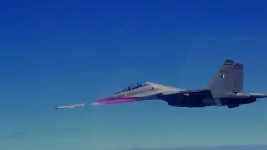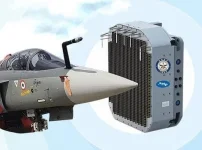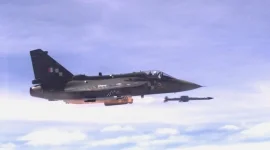- Views: 6K
- Replies: 32
A landmark defence collaboration between India and Israel is facing uncertainty amid allegations that Israel is independently marketing a jointly developed missile system, potentially excluding key technologies contributed by India.
The system in question, known as Barak-8 or the Medium-Range Surface-to-Air Missile (MR-SAM), was created through a partnership between India’s Defence Research and Development Organisation (DRDO) and Israel Aerospace Industries (IAI), marking a high point in the strategic ties between the two nations.
However, recent international sales of the missile by Israel have raised concerns within India's defence establishment. Reports suggest that the versions being sold to other countries do not include critical Indian-made components, such as the missile's advanced rocket motor, sparking questions about the fairness and future of such joint ventures.
A Flagship Project for Air Defence
Initiated in 2006 with an original investment of $₹$2,500 crore, the MR-SAM project was designed to provide both nations with a state-of-the-art air defence shield.The system is engineered to detect and destroy a wide array of aerial threats, including fighter jets, drones, cruise missiles, and ballistic missiles.
The standard variant has an effective range of up to 100 km, while an Extended Range (ER) version can intercept targets as far as 150 km away.
Its advanced features, including a unique dual-pulse rocket motor and an active radar seeker, allow it to engage multiple targets simultaneously with high precision in any weather.
For India, the project was a significant move towards technological self-reliance under its "Atmanirbhar Bharat" policy.
Major Indian defence firms, including Bharat Dynamics Limited (BDL) and Bharat Electronics Limited (BEL), were integral to producing essential parts of the system. This collaboration enabled India to gain sophisticated defence technology and significantly boost its domestic manufacturing capabilities.
For Israel, the partnership provided crucial funding and access to India's large defence market, facilitating the development of a next-generation air defence system that evolved from its earlier Barak-1 missile.
Proven Success and Growing Tensions
The MR-SAM system has demonstrated its effectiveness in real-world scenarios. In 2022, missiles from an Israeli Sa'ar 5-class warship successfully intercepted two Hezbollah drones.Furthermore, its capability was reportedly proven during the 2025 India-Pakistan conflict when it neutralised a Pakistani Fatah-2 missile over Haryana.
The system is now a critical asset for the Indian Army, Air Force, and Navy, deployed on key platforms like the aircraft carrier INS Vikrant and Kolkata-class destroyers.
Despite this shared success, friction has developed over Israel's unilateral marketing of the system. Under the brand name "Barak MX," Israel has secured major deals with countries like Azerbaijan, which purchased 12 systems, and Morocco, which signed a $500 million contract in 2022.
The core of the dispute lies in the claim that these export versions do not contain the dual-pulse rocket motor, which was specifically developed by India's DRDO for the project.
The Dispute Over Technology and Credit
The DRDO-developed dual-pulse motor is a critical innovation that gives the missile a secondary burst of acceleration in its final phase of flight, dramatically increasing its agility and kill probability against fast, evasive targets.Indian sources allege that by using its own propulsion system in export models, Israel is sidelining India's technological contribution. This has led to the perception that Indian funding was used to develop and perfect the system, but Indian industry is now being cut out of the financial benefits of its global sales.
Complicating the matter further are unresolved questions about the intellectual property rights (IPR) and the ownership of the missile's technical data. While India was a significant financial and technical partner, Israel appears to maintain primary control over the core technology.
This apparent imbalance has raised concerns in New Delhi about the equitable nature of the partnership, potentially creating a trust deficit that could impact future defence collaborations between the two strategic allies.




